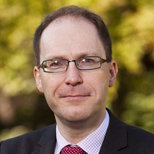George Monbiot: to move beyond capitalism, first build a straw man
SUGGESTED

‘If [capitalism] means a system that arises from lending money for interest, then there will be no “after capitalism”… If on the other hand Capitalism means something like the current dispensation, which allows a few people to seize much of the wealth generated by everyone, which blocks social mobility, which re-engineers the political system to serve the economic elite, then yes. There’s a lot we can do about it.’
Helpful to George, clearly. It should be self-evident to anyone with half a brain that defining something in deliberately loaded and negative terms makes it very easy to demonise it and to create a rallying cry for its destruction.
However, nobody does define capitalism in those terms. Capitalism is defined as
‘an economic system in which investment in and ownership of the means of production, distribution, and exchange of wealth is made and maintained chiefly by private individuals or corporations, especially as contrasted to cooperatively or state-owned means of wealth.’
In other words, individuals own the materials with which they turn their labour into products that are of value to themselves or others.
The opposite – the ‘public’ ownership of the means of production – which in practice means control of the ‘commanding heights of the economy’ by the political elite, is communism/socialism. Yet Monbiot is explicit in stating that what he wants is ‘not communism, but an advanced form of social democracy.’ What the difference is between what he is calling social democracy and what others might call socialism is, of course, deliberately unclear.
Beyond the burning of straw men, Monbiot relies on evidence-free prejudice (‘if you bequeath [money] to your children, you’ll only screw them up’) and biased and loaded questions (in response to ‘why should the rights of the dead trump the rights of the living?’ one might ask ‘why should the demands of the unrelated trump the rights of sons and daughters?’ or ‘why should the demands of those who were not involved in generating the wealth trump the rights of those who were?’).
At heart, Monbiot is a collectivist, who sees the product of individual action as ‘the common treasury of human kind’. Of course, the tragedy of the commons is that what is owned by all is owned by none. Somebody needs to administer any collective goods, and the history of social democratic control of wealth and production is not good. In the case of government spending (which Monbiot explicitly advocates) we see budgets that are inefficient, unconstrained, ineffective and shaped by rent-seeking rather than according to need. As for ‘public’ ownership of the means of production, we need only look at the record of state-owned enterprises to see that they represent a money pit.
Rather than fighting a straw man, George Monbiot needs to set out whether he would prefer that free individuals or politicians control the essential production goods that we require to produce the things we want and need. If he rejects individual ownership, he needs to address the myriad failures of collective ownership in the past. But that would require something more than a three minute cartoon.
1 thought on “George Monbiot: to move beyond capitalism, first build a straw man”
Comments are closed.





What strange logic, but not untypical. It is, of course, through giving power, through social democracy, to political structures that it becomes possible for those with the loudest voice and the most money to come to control that power (his definition of capitalism) – though there are other ways to (to which the logical response is surely to reduce state power). Now, it is perfectly reasonable for somebody to argue that this is a preferable situation to one in which the state has much less power in the economic sphere, but the danger of social democracy is precisely that it degenerates into chrony capitalism. Interesting that he thinks that the rights of the living trump those of the dead – does he think that the rights of the living trump those of the unconceived? If so, he could forget about worrying climate change. And, though he may be right to argue that children can get spoiled through their inheritances, that is a judgement parents can make – many children in my generation will only be able to have a retirement because of their inheritances (and they will not inherit until they are in their sixties). And, if free money will screw my children up, then will it not screw up those who have not earned it but receive it through state redistribution? Of course, if I cannot leave my money to my children without punitive tax, then I am either likely to consume it all (probably screwing me up as far as Monbiot is concerned) or find myself a good accountant (to nobody’s advantage except the accountant’s).